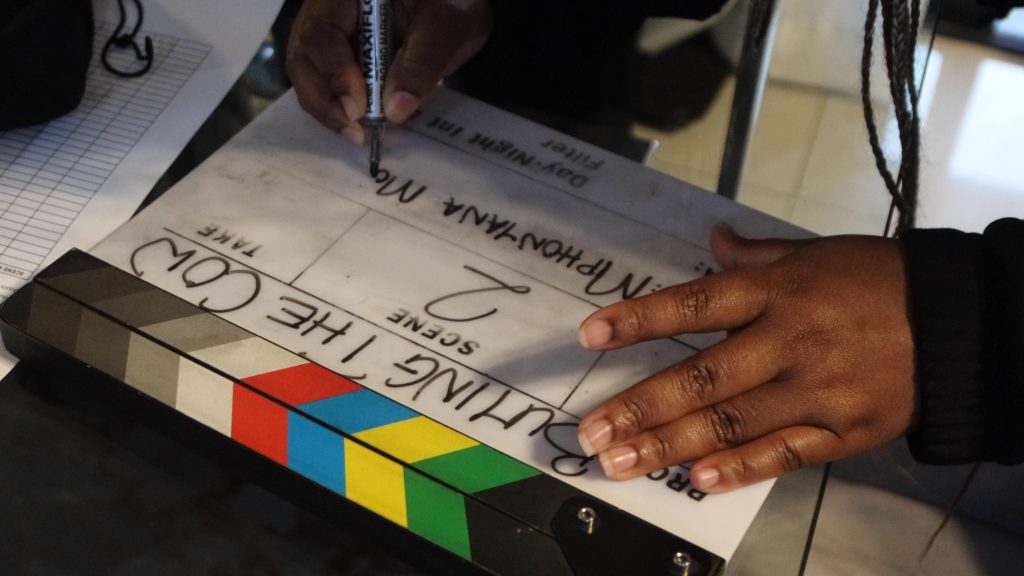“Our intention should now be to retrieve what we can of our past. We should write our own history books to prove that we did have a past and that it was a past that was just as worth writing and learning about as any other. We must do this for the simple reason that a nation without a past is a lost nation, and a people without a past is a people without a soul.”
These words, delivered in a speech at the University of Botswana, Lesotho, and Swaziland on May 15, 1970, as quoted in the Botswana Daily News on May 19, 1970, serve as a powerful call to action. The recent conclusion of the first session of the Sgela drama series marks a significant milestone. This story delved into adolescents’ social ills and behavioural challenges, accenting the clash between traditional and cultural beliefs. This Botswana narrative, transcending borders, has been on DStv since July.
“While I am sad that our drama has ended, I’m excited that Batswana had the rare opportunity to see it on an international platform. I am grateful for the support DStv Botswana management provided throughout this journey. We had not expected it.” said Thabiso Maretlwaneng, Sgela Director. Sgela conveyed the message of our founding fathers: that we have as much right as anybody to show who we are and where we have been. It is a call to action, urging us to expert our authority in the media-dominated world. “Ke nako ya rona” signifies the time to step out and compete because we are equally skilled.

“A nation without a past is a lost nation, and a people without a past is a people without a soul” signifies storytelling in Botswana. Stories like Sgela and other local narratives that will continue to feature on DStv and other platforms serve as a connector in identity embroidery. Reflecting on Sgela, renowned cinematographer and scholar Dr Gopolang Ditlhokwa, a media and communications lecturer at the University of Botswana, emphasises that celebrating stories from all corners of the country fosters a sense of belonging and pride in our diverse heritage.
When the nation supports local creators, it empowers local talent, creates jobs, and strengthens the creative industries, contributing to economic development and cultural vibrancy. Dr Ditlhowa mentions that “the Sgela storyline reminds teachers of their responsibility to wear the parental hat at school rather than being catalysts for school-related crimes by failing to guide their students properly. The storyline should be the first chapter in every teenager’s imagination of the future beyond school environments. It is an all-inclusive creation that touches the lives of future leaders.”
The academic believes Botswana is thirsty for more local talent on their screen. He says the time is ripe to serve them with homegrown storylines reflecting their experiences and sense of belonging. The long-term benefit of which, he says, is showing the world we are just as capable. Batswana will again be treated to three local films that will air on DStv in November this year: Mokwalo, Khumo ya Dinaledi and Buying the Cow.
All of them were produced and shot in the country. Mokwalo is a 52-minute exploration of grief, loss, and personal growth. Mokwalo, Khumo ya Dinaledi and Buying the Cow depicts the life of a college dropout who must rebuild his life after recklessly squandering his inheritance. Buying the Cow follows the intertwined lives of a couple as they navigate the complexities of modern love and ambition.
Dr Dithokwa says local stories preserve memories of communal identity. He says that when actors rejoin their communities from acting roles, they carry cultural memberships and impact their communities differently. He says this brings about behavioural changes, mentorship and inspiration. Dr Ditlhokwa says storylines that address social ills and other societal disorders have the most significant potential to unite communities, correct indiscipline and remind community members of their values and responsibilities towards a normal functioning of society.
The academics commended MultiChoice’s commitment to local content development, especially giving content producers international exposure, which motivates and empowers them to continue sharing their stories. He says support is crucial in promoting local narratives and cultural values.
Meanwhile the MultiChoice’s Managing Director Stephanie Pillay says of the upcoming movies, “These stories offer a unique opportunity to connect with the country’s culture, history, and experiences. They are our commitment to showcasing local content to Batswana.”


